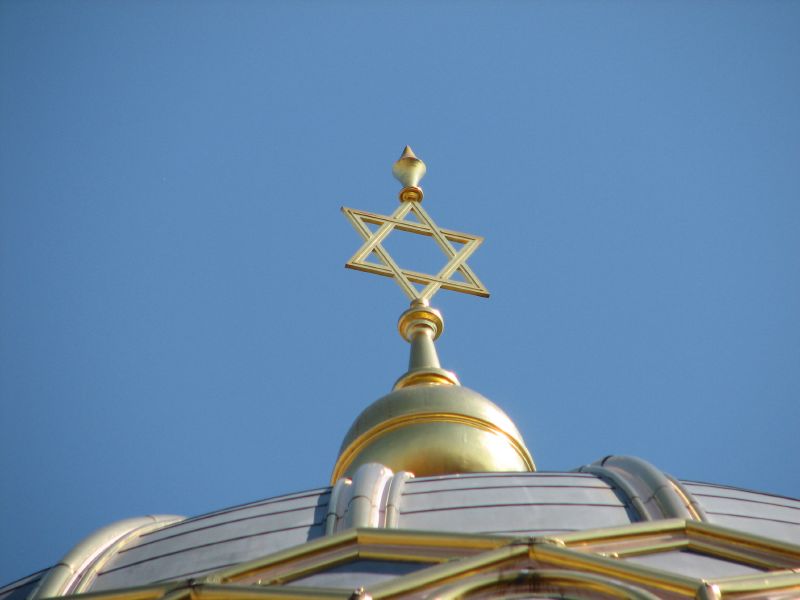The Student spoke to Elie, the president of the Edinburgh University Jewish Society (JSoc) to hear about the experience of Jewish students on campus in recent months. The conversation revealed that Jewish students have felt less safe on campus since the 7 October attack in Israel. This also follows a rise of anti-semitic incidents in the UK. According to JSoc’s president, students have taken efforts to appear less visibly Jewish and the society has increased its reliance on university security for on-campus events. Elie also described a state of shared grief for Jewish students. She has personally lost a loved one in the conflict and stated that “I would be surprised to speak to a Jewish student who hasn’t been affected by the current conflict in some way.”
Q: How have you seen the conflict affect JSoc members in the past few months?
A: “A lot of our members have been strongly, strongly impacted by it, some have had family and friends who have been killed or who are held hostage.
“It affects us in our everyday lives – Jewish students are expected to continue as normal but inside our hearts are breaking. You have to be so far detached from the people you love when they’re suffering. And that goes for people affected, obviously, by both sides of the conflict.
“And then the second strand as to how Jewish students have been affected is definitely the rise of antisemitism.”
Since 7 October, the UK has seen a spike in antisemitic incidents, with antisemitic hate crimes rising 1350 per cent in London, according to the Metropolitan Police.
“A lot of people feel they need to hide their Jewish identity. I was speaking to some friends in the society who have taken off their Star of David.”
Q: Have Jewish students made any changes since October 7 to appear less visibly Jewish?
A: “So, the most common one is definitely not wearing jewellery that identifies us as Jewish in public. Also, we have Kippahs, which is a religious head covering. People feel less safe to wear them now. And then some people have clothes with Hebrew writing and whatnot, stuff like that. We are less comfortable wearing them now.”
Q: In the vein of safety on campus, I was wondering if JSoc calls university security for safety purposes when you’re holding your own events?
A: “Yes, we need them. We work very closely with them. We’ve had them come to a few of our events, not only to provide physical security but also to speak to students, to give them a sense of security. Across the UK, there have been a few instances of aggression and harassment at JSoc events. Thankfully not in Edinburgh, although it’s always a worry. Because it has happened at other JSocs, we would rather be safe than sorry in Edinburgh.”
Shortly after 7 October, the Union of Jewish Students called for UK student unions to provide greater protection for Jewish university students. The call came in response to an influx of Jewish students experiencing intimidation and harassment on UK campuses.
Q: When you say that University security comes to your own events, would that be standard JSOC things like Shabbat dinners? What events do you call security for?
A: “Any event on campus where we are very visibly Jewish, then we’ll usually call them. They came to talk at one of our weekly bagel lunches towards the beginning of the conflict. We had a discussion circle with them about security on campus. And we held a vigil for the loss of our loved ones who had died at the beginning of October. For that, we did have university security because it was on campus.”
Elie stated that even for off-campus events, JSOC utilises security services to feel safe. A charity called the Community Security Trust (CST) provides volunteer security personnel to the Jewish community across the UK. CST attends JSOC’s Friday night dinners which are held off campus to ensure safety.
JSOC’s reliance on CST security and advice has increased in recent months. Elie described getting in contact whenever an anti semitic incident took place on or around campus.
Q: I’m interested in the experience of the Jewish student community experiencing the war from abroad. What has that looked like in terms of programming for your events? Have you done specific things to address some shared needs?
A: “We had a welfare coffee morning giving people somewhere to go and talk and express their feelings in a safe environment. We’ve had a few discussion circles.”
JSoc invites chaplains or the intercultural and anti-discrimination advisor for such discussions, providing a space for Jewish students to share experiences and feelings.
“We give people a space where they can express themselves in a safe environment because a lot of students do feel that that’s lacking from other university spaces.”
Q: Do you personally have family members or friends who are in Israel or who have been directly affected by the conflict?
A: “Yes, one of my friends from my gap year, she was at the Nova music festival and she was killed on October 7th. I also have family and friends who live in Israel.”
Q: How many people in JSoc have been directly affected by the conflict?
A: “I think every Jewish student, no matter their political opinion regarding the conflict, has been affected by this in some way whether it’s through the rise in antisemitism, personal connection to Israel or political and social exclusion.
“I would be surprised to speak to a Jewish student who hasn’t been affected by the current conflict in some way.”
“Star of David, Neue Synagogue, Berlin” by Will Palmer is licensed under CC BY 2.0.

